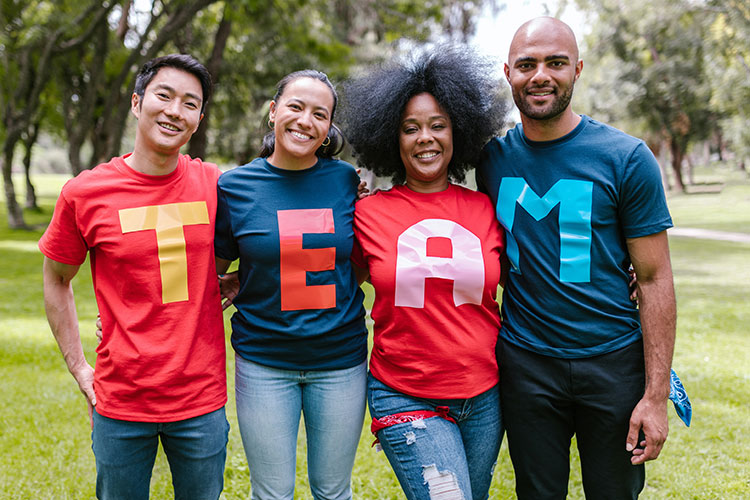Mastering Emotional and Cultural Intelligence
LifeSkills Academy Blog
Check back often to find interesting information and updates.
Mastering Emotional and Cultural Intelligence
Written by: Sandi MacCalla – Founder, LifeSkills Academy – 3/17/2025
Essential Soft Skills for Today’s Workplace
In fast-paced and interconnected work environments, two soft skills have risen to the top of the ‘must-have’ list: Emotional Intelligence (EI) and Cultural Intelligence (CQ). Organizations seek individuals who can navigate relationships with compassion as well as understand and respect diverse cultures. These skills exhibit personal and professional competency and set a tone for inclusion, innovation, and thriving workspaces.
Let’s delve deeper into what they are, increase our understanding of them, and develop our personal growth.
What is Emotional Intelligence (EI)?
Daniel Goleman, a pioneer in EI, defines it as “the ability to recognize, understand, and manage our own emotions while also recognizing, understanding, and influencing the emotions of others.” It is essential for leadership, teamwork, conflict resolution, and personal effectiveness.
Key Components:
- Self-awareness – Recognizing our own emotions and their impact.
- Self-Regulation – Managing our emotions in healthy ways.
- Motivation – Harnessing emotions to drive positive outcomes.
- Compassion – Understanding and considering others’ emotions.
- Social Skills – Managing relationships well and communicating effectively.
Becoming More Aware:
- Reflect on your emotional triggers and responses.
- Seek feedback from peers and mentors.
- Practice mindfulness and emotional journaling.
- Engage in active listening and observe emotional cues in conversations.
How to Develop Emotional Intelligence:
- Practice Self-Reflection: Set aside time to analyze emotional reactions in different situations.
- Improve Stress Management: Use techniques like exercise, deep breathing, and meditation.
- Enhance Communication: Develop active listening skills, seek to understand, and empathize.
- Adopt a Growth Mindset: View feedback as an opportunity for personal and professional development.
- Learn from Role Models: Observe emotionally intelligent leaders and implement their techniques.
“When dealing with people, remember you are not dealing with
creatures of logic, but creatures of emotion.”
~ Dale Carnegie
What is Cultural Intelligence?
Cultural intelligence (CQ) is the ability to function effectively in culturally diverse settings. It involves:
- Cognitive CQ – Understanding cultural norms and differences.
- Physical CQ – Adapting behavior to diverse cultural contexts.
- Emotional/Motivational CQ – Being open and willing to engage with diverse groups.
In a globalized world, diverse teams bring fresh ideas, improve problem-solving, and foster engagement.
Key Aspects of Cultural Intelligence:
- Cultural Competence – Understanding and interacting effectively with people from different backgrounds.
- Open-Mindedness – Being receptive to different perspectives.
- Adaptability – Adjusting to different cultural expectations and work styles.
- Inclusive Communication – Using language and behavior that respect all cultures.
- Bias Recognition – Identifying and challenging unconscious biases.
How to Develop Cultural Awareness:
- Educate Yourself: Read books, watch documentaries, and attend diversity seminars.
- Celebrate Differences: Participate in cultural festivals and networking events.
- Foster Inclusion: Encourage open discussions in workplaces.
- Respect Communication Styles: Learn varying norms in verbal and non-verbal interactions.
“Our ability to reach unity in diversity will be
the beauty and the test of our civilization.”
~ Mahatma Gandhi
Resources for Deeper Development:
- Books:
- Emotional Intelligence 2.0 by Travis Bradberry & Jean Greaves
- The Culture Map by Erin Meyer
- The 5 Levels of Leadership by John C. Maxwell
- Online Courses:
- Podcasts:
- The EQ Applied Podcast by Justin Bariso
- Cultural Differences & Leadership by Chris Smit
- Assessment Tool:
- Emotional Intelligence Appraisal (TalentSmart)
Final Thoughts
Emotional and Cultural Intelligence are not just workplace buzzwords; they are transformative skills that facilitate collaboration, leadership, and innovation. By actively developing these competencies, we contribute to more effective and emotionally intelligent work environments.
Take small, consistent steps in improving these skills—whether it’s through self-reflection, education, or engaging with diverse perspectives. The rewards are both personal and professional, opening doors to richer experiences and deeper connections.
Which of these skills are you currently working on? Share your thoughts and experiences with your team!
"When we cultivate emotional and cultural intelligence, we create workplaces where people are valued, engaged, and motivated to give their best." ~ Unknown
We invite you to sign up for our newsletters and class notices to stay informed about our classes, valuable life skills content, and updates. Join us on the journey of continuous learning and personal growth. Let's build a foundation for success in life and our world together.
Share this post!
Most Recent Posts ...
Posted on: 3/31/2025
Posted on: 3/24/2025
Posted on: 3/10/2025
Posted on: 3/3/2025
Search All Blog Posts
Blog Post Archive Categories
- Gaslighting: Recognizing, Counteracting, and Setting Up Boundaries
- 10 Success Strategies to Organize A Job Search
- Digital Fluency in Communications
- Fine Dining Etiquette That Elevates Your Professionalism
- Mastering Emotional and Cultural Intelligence
- Unlock Your Critical Thinking Superpower
- Words of Wisdom: Traveling 2024
- Thankful Thursdays
- Mothers - Words of Wisdom
- My interview with Dennis Pearce




